Stephen Roney's Blog, page 231
July 17, 2020
The Spirit of Sir John A.
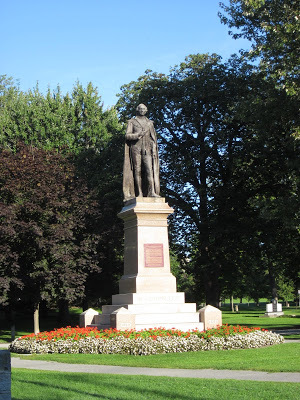
Beautiful lofty things: O'Leary's noble head;
My father upon the Abbey stage, before him a raging crowd:
'This Land of Saints,' and then as the applause died out,
'Of plaster Saints'; his beautiful mischievous head thrown back. - W.B. Yeats
One of my brilliant Chinese students made an important point in class today. The model essay in the text was arguing that celebrities have a duty to be role models; to ensure that their conduct is beyond reproach. Otherwise young people might imitate their behavior. A common argument in the West.
My student pointed out that doing so is actually more harmful—giving young people the false idea that there are no hard moral choices, that good people never do anything wrong. That is not the real world. Model that to children, and you are teaching them either utter cynicism, or despair.
Now apply this wisdom to the hysteria about toppling statues; the public justification for it is founded on this very childish delusion, which we indeed promote: nonsense like George Washington and the cherry tree. Although I think for most the real motive is more sinister, and dare not speak its name: simple envy.
I am tempted to blame the delusion in the USA on Calvinism: the Calvinists believe you are either saved or damned, and once you are saved, you never sin. Yet the same nonsense is everywhere in Catholicism as well, although perhaps only in English-speaking Catholicism, under the influence of the Calvinist majority. I think it was Saint John XXIII who remarked “Irish Catholicism is a terrible thing.” I have always gagged on the common prayer-card portrayals of Catholic saints: bathed in light from heaven, their features soft and placid, their eyes turned upward, their hands folded. Saint Kateri Tekakwitha was nearly blinded by smallpox; yet her face is always portrayed as smooth and spotless. In a profound way, the common devotional portrayals are the very opposite of what real sainthood is. Real sainthood is earned in the muck and the blood and the terrors of battle. These plaster saints make me want to vomit. Some actual saints have made the same observation: Theresa of Avila, Dorothy Day.
As I have said before, more than once, the good person is not the one who does not sin, but the one who admits to sin. Teaching children saints are sinless subverts what ought to be their essential moral education.
One of the more admirable things about Canada is that we used to understand this. Americans might tell their tall tales about George Washington or Abe Lincoln never telling a lie; we were perfectly sanguine that Sir John A. Macdonald, our own founder, told many. Despite our admiration for what he accomplished, we commonly heard he was a political operator, embroiled in a scandal or two, and a chronic drunk. Canadians have always been realistic about heroes.
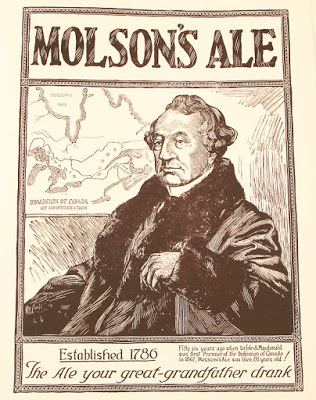
Now there is talk of suppressing his memory—even in his home town of Kingston Ontario. This ibased on the false premise my Chinese student understands clearly. It will no doubt make us look idiotic to much of the world, and idiotic to our grandchildren.
And in Kingston? Tourism is vital to Kingston’s economy, a day trip away from Toronto, Montreal, or Ottawa, and junction of the Rideau Canal and the Thousand Islands, two officially world-class tourism destinations. Being the home of Sir John A., and Canada’s first capital, is a big part of its brand. To suppress mention of Macdonald would be a travesty against the public good.
'Od's Blog: Catholic and Clear Grit comments on the passing parade.
Published on July 17, 2020 14:39
Hydroxychloraquine Works
And it seems there has been a deliberate attempt to suppress the news for political purposes and for the sake of profits.
'Od's Blog: Catholic and Clear Grit comments on the passing parade.
Published on July 17, 2020 06:45
July 15, 2020
A Time for Choosing
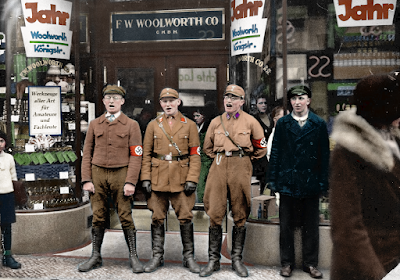 Black is the new brown: Stormtroopers enforcing early cancel culture.
Black is the new brown: Stormtroopers enforcing early cancel culture.Have you ever wondered how you would have behaved had you lived in Weimar Germany, as the Nazis rose to power? Would you have been one of the true believers, falling into line? Or would you have fought at any cost for human decency?
No need to wonder. You are there.
The parallels between Weimar Germany in its death throes and the USA today are obvious. The only difference is the name the Nazis use. Now they call themselves, disingenuously enough, “Antifa” or “Black Lives Matter.”
But the critical elements are the same:
1. The Nazis/Antifa believe that power is the only issue and the only goal. There is no truth but power; there is no morality but power. There are no common values to appeal to. This has long been explicit in postmodernism, and was bound to lead here. Hitler made it plain in Mein Kampf: the objective of the state or the movement or the individual is to get whatever advantage it can for itself. One large arm of Antifa enshrines it in their name: BAMN, “By Any Means Necessary.”
2. Since everything is about power, it is all only a matter of who gets to be on top. There is no equality; there is no fairness. There is no question of compromise, dialogue, or shared interests. Black lives matter. All lives do not matter. Say so, and you may get shot.
3. The action has moved into the streets; it is now moved, inevitably, to a test of strength and resolve. In this atmosphere of chaos, the general populace will immediately crave order, and will gravitate to whichever faction looks stronger in hopes of getting it. We are seeing this everywhere. This is how you make good Germans. This is the strategy we can expect from most people, allowing the worst to take command. For now, BLM and Antifa look stronger. It may be that a strong man on the right may emerge, instead of Antifa or BLM taking over. It makes no difference: it would be a choice between Hitler and Stalin. In fact, the situation automatically favours whichever side is least principled, and the worst will rise to the top, whichever side it is.
4. As in Weimar Germany, it has become a matter of race and of searching for scapegoats. Hitler fixed on the Jews and the Freemasons, and so forth. BLM and Antifa and their acolytes have fixed on “whites,” Republicans, and so forth. The selection is more or less automatic: if the only value is power, you target whomever you suspect of being powerful or potentially rivals for power for elimination. Similarly dire consequences for the targeted are only too likely.
5. As in Weimar Germany, we see the authorities tacitly favouring one side in the battle in the streets. The bias in favour of power that infects the streets has already infected the elite. In both Weimar Germany and contemporary America, it had its main power base in the universities and in the bureaucracy. Those sophisticated sorts who had read Nietzsche and considered themselves supermen; those sophisticates who have read the French postmodernists and consider themselves much cleverer than the common rabble who believe in morality.
6. In Weimar Germany, the authorities generally looked the other way when Nazis acted illegally. When Hitler attempted a putsch, he got a comfortable prison term with writing materials. We see this today in the grossly preferential treatment of leftists both in the popular culture and in the law courts. Witness the prosecution of General Flynn, how figures on the right are not permitted to speak. This may in part be explained by the influence of the postmodern assumptions on the bureaucratic and academic class that feeds the bureaucracy at all levels.
7. Any authorities who are not themselves Nazis seem paralyzed. “The best lack all conviction, while the worst are full of passionate intensity,” as Yeats described the 1930s. This is ordinary human denial in the face of evil. We do not want to accept the presence of evil, because we know we are ourselves sometimes guilty. Given an essentially unprincipled new movement, one which has embraced evil. this allows them free rein, as it did at Munich. We watch Mitt Romney march with Black Lives Matter. Everybody, even right-wing commentators, is giving them far too much credit.
And so it goes.
Except that the Nazism of the 1930s infected only one power, and only one of the great powers. Hitler appeared and rose when Germany was intrinsically weak, militarily and economically. Even so, thanks to appeasement, he got shockingly far.
Imagine what the Nazis could do if they arose in the world’s most powerful country, or even in a number of countries simultaneously.
Last time, the primary scapegoats were the Jews, only about 6% of the German population. This time, it is “white males,” 30% of the US population. Not to mention the ongoing holocaust of the unborn—and the certainty that white women will be next. Last time it was Freemasons, only a fraction of the German population, surely. This time it is Republicans, essentially half the population.
The Nazis may have bitten off more than they can chew, leading to their rapid collapse. Let us hope so. Because, if not, the potential for carnage and general destruction is exponentially higher.
Which side are you on?
'Od's Blog: Catholic and Clear Grit comments on the passing parade.
Published on July 15, 2020 16:37
Fortune and Men's Eyes
Another fine dramatic reading by Jack Rigg. Shakespeare's Sonnet 29.
'Od's Blog: Catholic and Clear Grit comments on the passing parade.
Published on July 15, 2020 12:24
July 13, 2020
The Washington Swamp Creatures
 Decapitated.
Decapitated.The Washington Redskins have just announced they are changing their name.
Here are a few more helpful suggestions for a new one.
The Washington KneebendersThe Washington Lost TribeThe Washington PuntersThe Washington SnowflakesThe Washington YellowskinsThe Washington RednecksThe Washington Indigenous PeopleThe Washington MohicansThe Washington WaldosThe Washington Toppled Statues
The Washington Edskin-raysThe Washington Crimson EpidermisesThe Washington Smallpox BlanketsThe Washington Guilt TrippersThe Washington WasherwomenThe Washington WatergatesThe Washington White MenThe Washington WetsThe Washington Dog-faced Pony SoldiersThe Washington Expletives Deleted
The Washington Pigskins
The Washington Gorgeous Georges
You're welcome, Washingtonians.
'Od's Blog: Catholic and Clear Grit comments on the passing parade.
Published on July 13, 2020 09:42
July 12, 2020
Does the World Face a Leadership Vacuum?
In the midst of this coronavirus, the USA seems to be dissolving into chaos. They seem on the brink of civil war.
Nor is China looking strong. Rather, the CCP’s thrashing about looks desperate. They probably face a prolonged, severe economic downturn, and a chaotic change of government.
Who will rise to fill the vacuum if both the US and China are out of the game, at least temporarily?
The Muslim world has been a problem for everybody, but that does not mean they can assume leadership: they have been a problem to themselves as well. They do not seem capable of running a country, much less the world. Islam looked stronger than it was while buoyed by oil riches. That spigot has closed, and will not reopen.
The same is true for Russia; they had some muscle so long as they were a petropower. They are now probably doomed to fade into insignificance, for the foreseeable future.
The EU? Europe has been committing slow suicide for the last one hundred years, and the pace has hastened. The decadence and the self-hate seems terminal. If they pulled out of the union, and began a new one among themselves, the smaller nations of Central and Eastern Europe could accomplish something. But that would need a major restructuring of which there seems no trace on the far horizon. And they would still not be terribly powerful. A new Austro-Hungarian Empire?
I see three possible new world leaders. One is India, poised to perhaps take over from China in manufacturing. But their prospects seem medium to long-term. One is the ring of middle-level East and Southeast Asian nations, ASEAN plus Taiwan and South Korea, which have been revealed by the coronavirus to have great vitality. And one is CANZUK.
Indeed, the world’s need for CANZUK may soon be urgent.
'Od's Blog: Catholic and Clear Grit comments on the passing parade.
Published on July 12, 2020 14:07
Hong Kong: What We Can Do
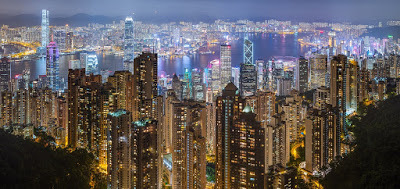
There is nothing the rest of the world can do, physically, to help Hong Kong, if China is determined to swallow it. Nevertheless, China’s incursion is a blatant violation of treaty obligations; so it seems something must be done. The world must respond in some way.
The UK is talking about giving Hong Kongers a limited right to residency. Canada too can do this. It seems to me this is an instance in which Canada’s vast open spaces ought to be used in the cause of world freedom; this is, unlike Syria or Somalia, a case of legitimate refugees. This is when we should open our doors and ports.
It is largely so that our resources are available to such legitimate refugees that I oppose the current overall high levels of immigration.
I would strongly support letting in genuine Syrian refugees as well: if we let in only Christians, Yasidis, and other religious minorities. But letting in all comers is rather like letting all Germans emigrate to Canada during the Nazi holocaust: some of them will be genuine refugees, but many of the others will simply be importing the ideology that led to the trouble. And may well be committed to destroying Canada as well. The same for Somalia. As a general principle, aside from toxic ideologies, importing people from a land in civil war is likely to import the civil war.
Genuine refugees are a different matter. They are intrinsically unlikely to maintain strong emotional ties to the land they are fleeing; for them there is no going back. They are likely to commit wholeheartedly to Canadian society. They make ideal immigrants.
Hong Kongers bear no responsibility for their own situation. Moreover, since Hong Kong was until so recently run by Britain, they will have a head start in understanding and adapting to Canadian ways.
I suggest the proviso that they not settle in Vancouver or Toronto; perhaps nowhere in BC, Quebec, or Ontario. Other parts of the country need more people, while in Vancouver and Toronto the housing infrastructure cannot meet the demand. We want to fill our wide open spaces, not further crowd our largest cities. Moreover, spread out, they are more likely to assimilate, rather than create a ghetto. We used to understand that ghettos were a problem.
China is threatening retaliation against Britain for suggesting such a freer immigration policy. Yet simply allowing refugees to come barely counts as punishment for China’s illegal act. One simple further action, however, would. It would cost nothing, directly, and risk no military confrontations.
Simply formally recognize Taiwan.
Democratic countries everywhere should now formally recognize Taiwan. We should do it all at once, so that China would not be able to retaliate, as they are trying to do with Australia, and threatening to do with Britain. NATO could coordinate on this; the EU could coordinate on it. It is, on top of anything else, simply the right thing to do: Taiwan is indeed independent, functionally, and this is only a recognition of facts on the ground.
It might seem trivial, but we Westerners rarely comprehend how important “face” is in China.
We have no obligation to play along.
'Od's Blog: Catholic and Clear Grit comments on the passing parade.
Published on July 12, 2020 07:15
July 11, 2020
Reparations for Slavery
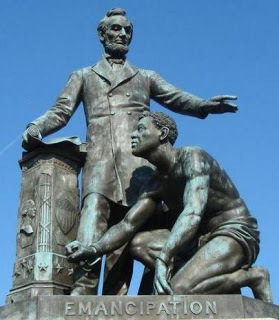
One aspect of the current uproar around race is a demand in the US that the government pay reparations for slavery.
The notion is nonsensical.
To whom? There are no former slaves in the USA. To pay reparations to the descendants of slaves becomes a matter of inherited privilege. The Declaration of Independence weighed in against such things in stern terms when it declared that all men are created equal.
And how do you track descendants? As any DNA analysis will demonstrate, essentially no “African-Americans” alive today are of purely African origin. In other words, part of them is slave, and part of them is not—is, possibly, slave owner. Presumably, then, they should pay reparations to themselves, one pocket to the other.
By contrast, given the demographics, it is exceptionally unlikely that the average non-black American living and paying taxes today had an ancestor who owned African slaves. Most have come more cecently from Europe, and even among those whose ancestors were in North America before 1860, the rate of slaveholding was something like 1%. If they came from Europe, slavery had not been a thing in Europe for the past few thousand years. By contrast, among African-Americans, even their African ancestors were likely to have had African slaves, since slavery was an endemic practice in Africa until recent times. Why then are the descendants of those who did not hold slaves paying reparations to the descendants of slaveholders?
It is true that corporations are considered people; accordingly, the US government can be held liable now for injustices perpetrated by the US government in even the distant past.
But here we have another problem. The US government spent a good deal of money, and lost a lot of soldiers’ lives, to end slavery. The governmental organization liable for slavery would be the Confederate States of America. I hear they filed for bankruptcy some time ago.
Perhaps then government responsibility devolves to the individual states. But good luck figuring out whether, and how many of, a given individual’s ancestors were held as slaves in the sovereign state of Mississippi.
And then, what about others whose ancestors were enslaved? What about the Irish, my own forebears, who were commonly held in indentured servitude, slavery by the UN’s current definition, throughout North America and the Caribbean, and who were dying in multitudes by a largely government-induced famine in the same years immediately before the African slaves were freed in the US? Why reparations for the one group, and not the other?
The natural reaction is to point out that modern Irish-Americans do not need the money. By and large, despite coming from such a dark place so recently, they are doing well. The same might be said of the Jews, who were being dispossessed and systematically exterminated in Europe up to 1945, almost a century after the last slave in the US was freed. Yet nobody thinks the Jews need public money. Or the Armenians, or the Lebanese, or the Ukrainians, or the Cambodians, all victims of more recent holocausts.
Reparations are not called for, would not be just, and, on this evidence, would do no good. It is not the legacy of slavery that is holding African-Americans back.
'Od's Blog: Catholic and Clear Grit comments on the passing parade.
Published on July 11, 2020 07:16
July 10, 2020
Taking a Break from the Apocalypse to Speak of a Possible Return to Reason
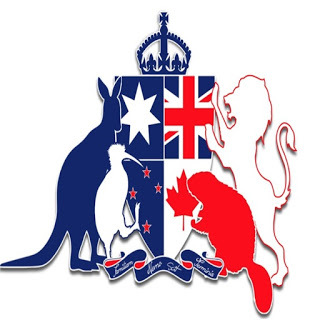
As the world goes mad, it is soothing to contemplate the possibility of CANZUK, the proposed union of Canada, Australia, New Zealand, and the United Kingdom. A large part of this must be nostalgia—I am just old enough to have some memory of when the British Commonwealth still meant something. Although most of that sense probably came from old boys’ books I had inherited from two generations earlier, describing a world that was no longer there. As a mere boy myself, I did not necessarily know. But the return of a real, muscular Commonwealth feels to me like a return to reason.
One criticism levelled against the proposal to revive closer ties among the four dominions is that this union seems based on race—it does not include any of the “non-white” former colonies.
Apologists generally counter by pointing out that CANZUK would actually be less “white” than the EU, and nobody objects to the EU on this basis. And they argue that only these four nations qualify on economic grounds—other former parts of the British Empire are much poorer.
But to say as much is to concede a point that ought not be conceded. What is wrong with people uniting on the basis of a common ethnicity? When, in other words, did the nation-state become forbidden? And why has nobody else heard?
Since the decline of the great empires, countries have been organized on ethnic grounds; this was the progressive concept Wilson claimed the US had fought for with his Fourteen Points. The notion that a people had a right to self-determination was the primary argument against those empires. That it is of fundamental importance, a human right, that whoever runs your government be of the same genetic makeup as yourself—that this supersedes the need for either good government or democracy.
But this very principle is the most powerful argument for CANZUK: that it will reunite a single people, too long artificially divided. Back at the beginning of the 20th century, when the idea of an Imperial Federation was floated, the argument against was that distances and lack of intercommunication made this impractical. And so these lands went their separate ways. It clearly is no longer. There is no longer any reason for the British ethnicity, if we may call it that, to be kept apart.
The CANZUK countries accept the automatic citizenship of anyone born in that country. Try the same in most countries—try that in Saudi Arabia, or Korea, or Japan. Try it in Germany, or anywhere in Europe, until recently. In most countries citizenship is automatic only with the right ethnicity. Britishness is unusual in not being based on actual genetics, but on shared traditions. This is largely because the UK was always genetically and even ethnically diverse, a union of four distinct populations, English, Irish, Scottish, and Welsh. Just try telling a Scot he is English.
“British” ethnicity is thus a matter of the shared history, to some extent language, but primarily shared legal and government traditions, and shared allegiance to the British monarchy.
Shared legal and government traditions are the best reason possible for a partial reunification, and make the matter easy and natural.
'Od's Blog: Catholic and Clear Grit comments on the passing parade.
Published on July 10, 2020 14:33
July 9, 2020
North of Princess
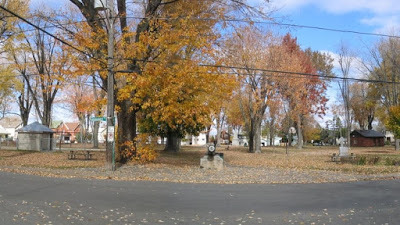 The crime-infested slums of Kingston.
The crime-infested slums of Kingston.Kingston, Ontario, the area around downtown, is roughly a square dissected diagonally by the main street, Princess Street, running from bottom right (or Southeast) to top left (or Northwest). And whether you live north and east of that line, or south and west, means everything to everyone. Everyone knows that “North of Princess” is an area of crime and slums, into which decent people must never venture.
This is, objectively speaking, false; at least in that the crime rate in Kingston is actually quite low. If the place is poor, surely merely being poor is no reason to stay away. The area north of Princess is historic, and has a fascinating layout. Elsewhere, so close to downtown, it would probably be prime yuppie real estate.
I have not seen this kind of radical social divide in any other Canadian city or town in which I have lived—with one exception. In Montreal, it was always forbidden when I was a child to venture into Point St. Charles, a smallish neighbourhood near the waterfront.
The common denominator?
The first Irish settlers, dirt poor, found work building the Rideau Canal, finished in 1832. The final locks on the southward end are just north and east of Kingston proper, at Kingston Mills. So they would naturally have settled there, the nearest urban centre where they might find work. At the canal’s north end, in Ottawa, the original Irish settlement is similarly hard by the last locks, which in this case run through the city itself.
The typical accent of “North of Princess” still has a distinctly Irish sound.
The same thing seems true of Point St. Charles. This was where the Irish settled once they came off the fever ships, right near the docks. Here they found a livelihood in the transport trade, and digging the Lachine Canal.
Anti-Irish prejudice, the original racial prejudice in English Canada—for no one, contrary to popular myth, was ever prejudiced against the Indians—endures. It remains one prejudice that is perfectly acceptable, indeed required, in polite Canadian society.
And anti-Irish prejudice was the issue in Montreal, too, among the Anglos; and not anti-French prejudice. No problem as a child going into poor French neighbourhoods, or Craig Street, with its pawn shops, or Old Montreal, which used to be pretty gritty. But not Point St. Charles.
Even, or perhaps especially, in my own ethnically Irish family. Having learned to “pass,” perhaps, they were that much more afraid of any possible associations with the place. It is as if the area still had cholera, and you might catch it.
In fact, that is exactly what people used to say, decades after the cholera ships, about “North of Princess.”
The same seems true in the USA. It is intolerable to say the word “nigger,” for example, or “redskin”; but nobody objects to the term “hillbilly.” And everybody thinks it is right and proper to look down on such trash.
The people we call hillbillies are essentially the earliest Irish settlers (they call themselves, to partly obscure that shameful fact, “Scotch-Irish”). Once they had survived their initial indentured servitude, they were obliged to eke out a subsistence in the thin soil of the hills and mountains.
I doubt I will live to see the end of this anti-Irish prejudice. I doubt my grandchildren will.
'Od's Blog: Catholic and Clear Grit comments on the passing parade.
Published on July 09, 2020 09:25



